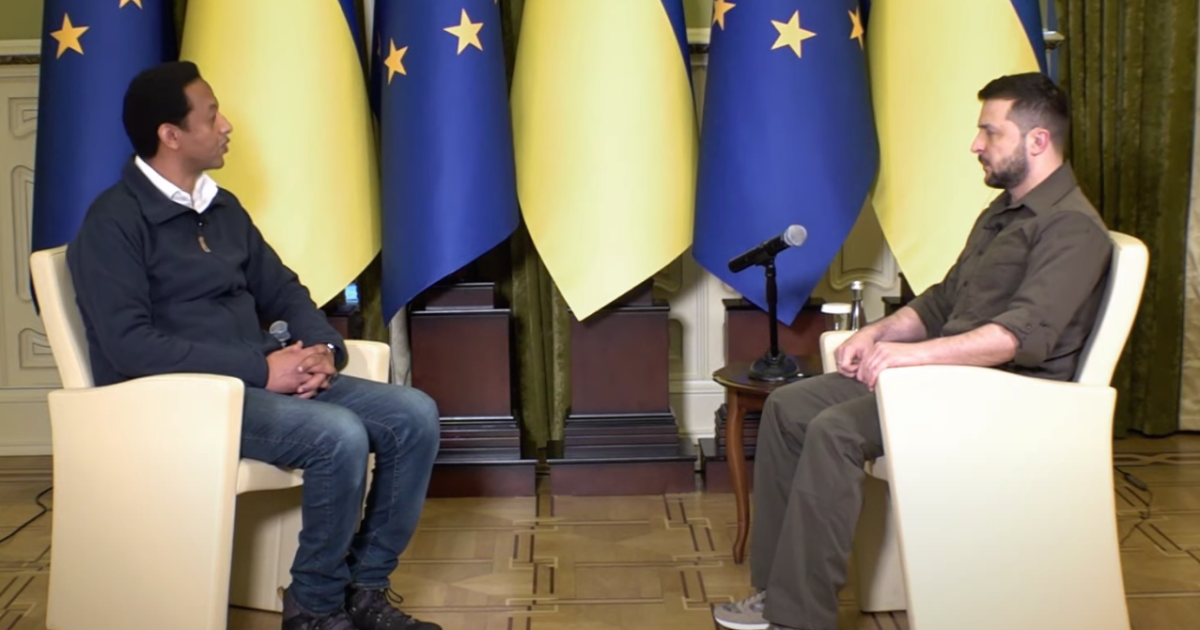What are depleted uranium munitions and why is US sending them to Ukraine? | Russia-Ukraine war News
The United States has announced plans to supply Ukraine with depleted uranium munitions to stave off the Russian military’s offensive, drawing fierce condemnation from Moscow.
The planned transfer, which comes as part of a $1bn US aid package for Kyiv unveiled on Wednesday, also has raised questions about the possible effects depleted uranium could have on civilians in Ukraine.
US President Joe Biden’s administration has defended its decision, with a White House spokesman telling reporters that the ammunition poses “no radioactive threat”.
“They are simply denser than more conventional tank rounds. But there’s no carcinogenic or radioactive threat posed by depleted uranium rounds,” US National Security Council spokesman John Kirby said.
But Russia has lambasted the US, with the Russian embassy in Washington denouncing the Biden administration’s move as “an indicator of inhumanity” that will cause “indiscriminate effects”.
Here’s all you need to know:
What is the US sending to Ukraine?
The US announced on Wednesday that it plans to send armour-piercing, depleted uranium munitions to Ukraine, which is fighting off Russia’s continuing invasion.
The 120mm rounds will be used to arm the 31 M1A1 Abrams tanks that the US plans to deliver to Kyiv in the latter half of the year.
The rounds were developed by the US during the Cold War to destroy Soviet tanks, including the same T-72 tanks that Ukraine now faces in its counteroffensive.
What is depleted uranium?
Depleted uranium is a byproduct of the process to create the rarer, enriched uranium used in nuclear fuel and weapons.
The rounds retain some radioactive properties, but they cannot generate a nuclear reaction like a nuclear weapon would, RAND nuclear expert and policy researcher Edward Geist said.
Although far less powerful than enriched uranium and incapable of generating a nuclear reaction, depleted uranium is extremely dense – more dense than lead – a quality that makes it highly attractive as a projectile.
“It’s so dense and it’s got so much momentum that it just keeps going through the armour – and it heats it up so much that it catches on fire,” Geist said.
According to the Oak Ridge Associated Universities Museum of Radiation and Radioactivity in the US city of Tennessee, “as a DU [depleted uranium] penetrator strikes a target, its surface temperature increases dramatically”.
And when that depleted uranium penetrates a target, “the larger fragments tend to chew up whatever is inside, while the pyrophoricity of the uranium increases the likelihood that the vehicle’s fuel and/or ammunition will explode”.
Which countries have depleted uranium munitions?
The US, United Kingdom, Russia, China, France and Pakistan produce depleted uranium weapons, which are not classified as nuclear weapons, according to the International Coalition to Ban Uranium Weapons.
Another 14 states are known to store them, it says.
What are the risks?
The health effects of depleted uranium have been a subject of debate. While some scientists link depleted-uranium ammunitions to many ailments, including cancer, other studies dismiss such risks.
The issue surfaced in the past decade after some researchers blamed depleted uranium for upticks in birth defects near US military bases and battlefields in Iraq.
The US military, which says it has used depleted uranium since 1991 when it was involved in the first Gulf War, has described the ammunition as only “slightly” radioactive. It says depleted uranium only poses long-term health hazards if inhaled or ingested in large amounts.
The United Nations nuclear watchdog, the IAEA, says the main health risk of depleted uranium is its chemical toxicity, not radioactivity.
“High concentrations in the kidney can cause damage and, in extreme cases, renal failure,” the agency says. “The general medical and scientific consensus is that in cases of high intake, uranium is likely to become a chemical toxicology problem before it is a radiological problem.”
What has the US said?
In March, the US dismissed Russian protests after the UK said it would send depleted uranium munitions to Ukraine, calling Moscow’s concerns a “straw man” argument.
In April, a UK government official confirmed that depleted uranium ammunition was already in possession of Ukrainian forces.
On Wednesday, Politico quoted an unidentified US official as saying that Russia is simply concerned about its tanks in Ukraine.
“What really is happening is that Russia simply doesn’t want to see Ukraine with tanks and more effective tank rounds that could be lethal against Russian tanks,” the official said. “If Russia has an issue with that, they can withdraw their tanks from Ukraine.”
The comment echoed a comment from Kirby, the White House’s national security spokesman, in March, when he told reporters that Russia “just doesn’t want Ukraine to continue to take out its tanks”.
Kirby said on Wednesday that Washington wants to bolster Ukrainian forces in their counteroffensive and believes “that depleted uranium rounds will help them be more effective on the battlefield”.
What has Russia said?
Russia has strongly condemned the transfer of depleted uranium munitions to Ukraine.
“The US Administration’s decision to send depleted uranium rounds to [Kyiv] is a clear sign of inhumanity,” the Russian embassy in Washington said in a statement on Wednesday.
“Obviously, Washington, obsessed with the idea of inflicting a ‘strategic defeat’ on Russia, is ready to fight not only to the last Ukrainian but to put a cross on the future generations,” it added.
Journalist Yulia Shapovalova told Al Jazeera from Moscow that Russia has said it “totally disagrees” with the US stance that the shells do not pose a radioactive threat. “Russia sees it as a new round of escalation,” Shapovalova reported.
“The Kremlin said that this would not affect the course of the special military operation … The operation will continue no matter what.”
Shapovalova added that Moscow has requested a meeting at the UN Security Council on the supply of Western weapons to Ukraine for September 12.
“And no doubt, these latest developments with the depleted uranium munitions will also be discussed there.”




